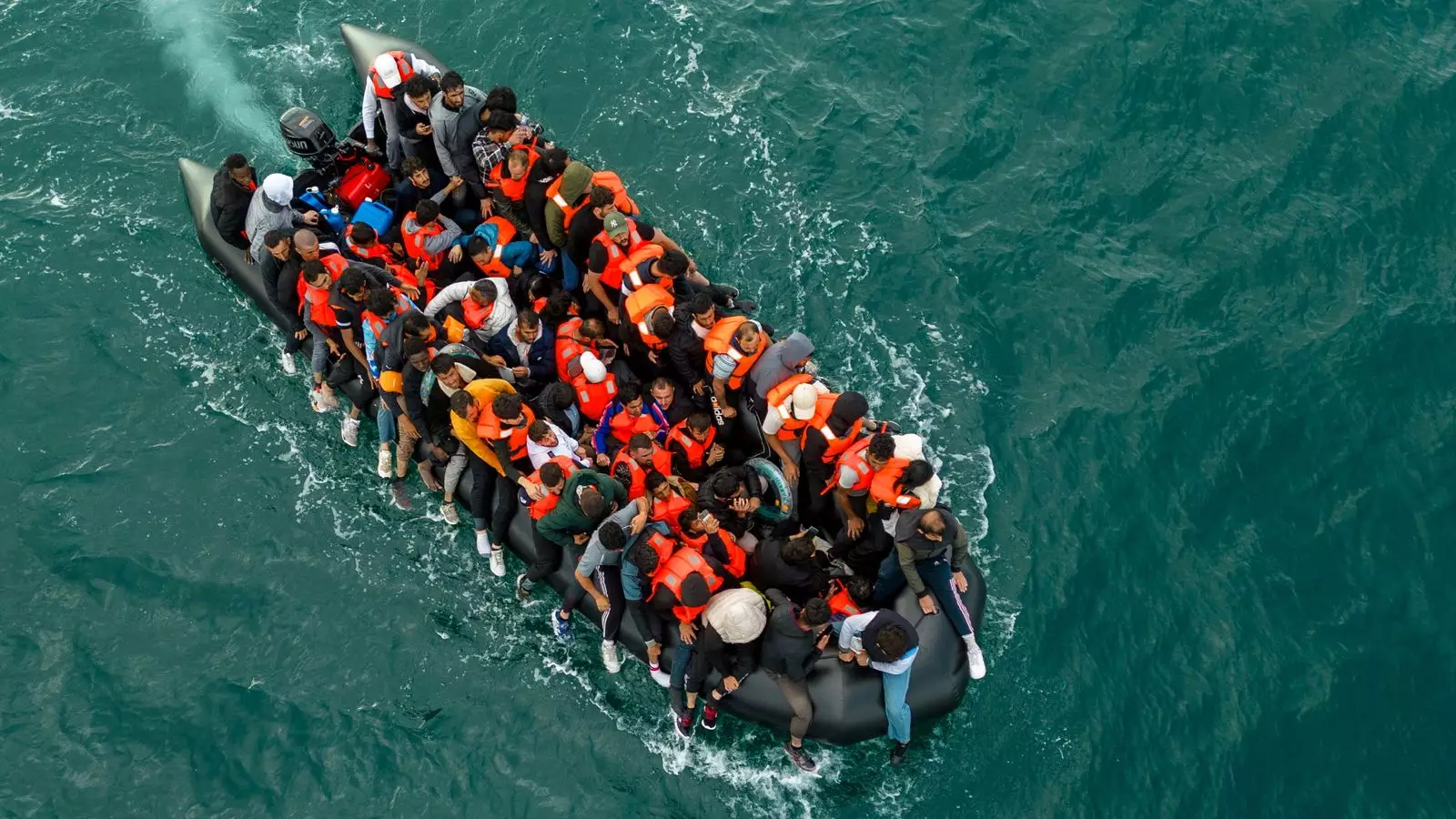The recent changes to the UK’s Home Office guidance regarding citizenship applications have sparked significant debate among politicians, advocates, and the general public. As of February 10, migrants entering the UK illegally—whether by perilous small boat crossings or by hiding in lorries—will face increased obstacles in their pursuit of British citizenship. The revised “Good Character” guidance indicates that these individuals “will normally be refused citizenship,” an assertion that underscores the government’s commitment to tightening immigration policies.
The key element of the new guidance is the emphasis on the circumstances under which migrants arrive in the UK. The policy explicitly states that individuals who undertake dangerous journeys, such as crossing the English Channel in small boats, are not eligible for citizenship regardless of their arrival date. Although individuals who arrive through conventional means—such as commercial flights—are exempt from this rule, the narrowing of parameters surrounding citizenship eligibility raises questions about fairness and justice, especially for those fleeing conflict or persecution.
Previously, individuals arriving through irregular routes had been able to apply for citizenship after a waiting period of ten years. It is important to note that this guideline change does not automatically alter the status of current refugees, but it sets a new legal precedent that may impact future cases considerably. Government officials assert that this policy is designed to clarify existing rules and further deter illegal immigration. However, the ramifications of this approach may prove to be far-reaching, impacting the UK’s handling of asylum seekers and refugees.
The Home Office’s report noted a significant spike in the number of individuals arriving in small boats, with nearly 25,000 reported between July 4, 2024, and February 6, 2025—a 28% rise compared to the previous year. This alarming trend signifies an increasingly perilous journey for refugees and could lead to a humanitarian crisis. Critics argue that framing these individuals merely as illegal entrants ignores the desperate circumstances that compel them to risk their lives.
The political landscape surrounding immigration has shifted dramatically, particularly with the Labour government’s recent ascension to power. Their manifesto, which included the ambitious goal of dismantling people-smuggling operations, puts pressure on policymakers to create solutions rather than punitive measures. As more individuals seek asylum, it remains to be seen how the government’s evolving policies will address the root causes of migration and the needs of vulnerable populations.
The recent legislation has not gone unnoticed by advocacy groups and political figures. Labour MP Stella Creasy articulated her concerns on social media, emphasizing the moral obligation to provide pathways to citizenship for those granted refugee status. “To say they can have a home in our country, but never a place in our society and be forever second class,” reflects a sentiment that resonates with many who believe in community integration and support for refugees.
The Refugee Council echoed these sentiments, stating that the new policy “flies in the face of reason.” They argue that most British citizens desire for refugees to integrate into society, thereby benefiting local communities and contributing to the economy. This raises essential ethical questions: what does it mean to be granted asylum in the UK if one cannot access citizenship and the rights that accompany it?
While the Home Office has characterized the recent changes as a necessary reinforcement of immigration policy, the broader implications of this shift warrant thorough examination. With plans to bolster policing against people smugglers and increase border security measures, there is a palpable tension between safeguarding national interests and upholding humanitarian principles.
As the UK navigates these contentious immigration policies, it must confront the ethical dilemmas posed by a system that exacerbates the already precarious situation for vulnerable migrants. The current climate raises critical questions about inclusiveness, fairness, and humanity as the nation attempts to reconcile its borders with its values.
Ultimately, the new citizenship guidelines reflect a broader trend in UK immigration policy that prioritizes enforcement over compassion. As the political and social implications unfold, it is crucial that society engage in robust debate about the future direction of immigration and the treatment of those seeking refuge within its shores.

